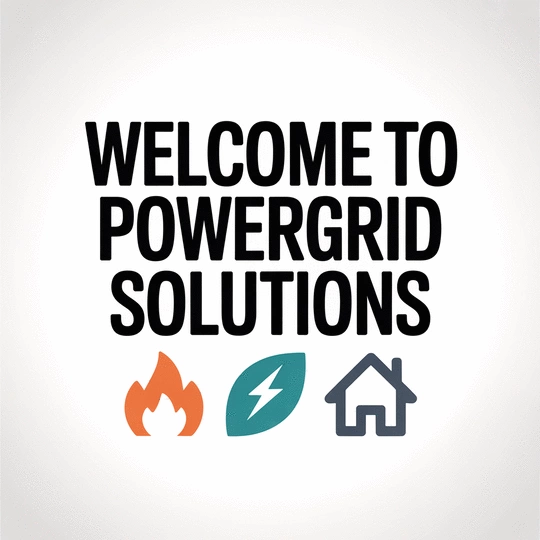Choosing the right heating solution for your home can be overwhelming, especially when weighing the pros and cons of electric versus gas fireplaces. Did you know that your choice could significantly impact your home's comfort and energy efficiency? Understanding the nuances of these options will empower you to make an informed decision that aligns with your lifestyle and budget.
What You Will Learn
- Electric fireplaces offer lower installation costs, requiring just a power source, while gas fireplaces incur higher expenses due to gas lines and venting.
- Operational expenses vary; electric models usually have lower operating costs, while gas models can provide more heat for larger spaces—consider your local energy rates.
- Electric fireplaces are ideal for smaller rooms, offering quick heat, whereas gas fireplaces excel in heating larger areas efficiently.
- Maintenance needs differ; electric units require minimal upkeep compared to gas fireplaces, which need regular safety inspections.
- Consider the resale value of your choice; stylish electric fireplaces may attract buyers, while well-installed gas options can enhance energy efficiency appeal.
Cost Comparison: Electric vs Gas Fireplaces
This visual highlights the key cost differences between electric and gas fireplaces across three main factors: installation costs, operational expenses, and maintenance needs. For a more detailed guide on selecting the right option, check out our choosing your ideal electric fireplace guide.
Installation Costs
Electric fireplaces typically have lower installation costs due to minimal requirements.
Gas fireplaces may incur higher costs due to the need for gas lines and venting systems.
Operational Expenses
Electric fireplaces usually have a lower cost per hour of operation.
Gas fireplaces can provide more heat but have fluctuating fuel costs.
Maintenance Needs
Electric models require less maintenance compared to gas units.
Gas units may need regular inspections for safety and efficiency.
Understanding the Cost Dynamics of Electric vs Gas Fireplaces
When it comes to choosing the right heating solution for your home, understanding the cost dynamics of electric and gas fireplaces is essential. I often hear from homeowners who are torn between the two options, and it's no wonder—both have distinct advantages and potential drawbacks. In this section, we'll break down the basics of each fireplace type and explore the key factors that influence their costs.
Defining Electric Fireplaces and Gas Fireplaces
What is an Electric Fireplace?
An electric fireplace is a modern heating solution that mimics the look of a traditional fireplace without the hassle of wood or gas. These units use electricity to produce heat and often feature realistic flame effects to create a cozy ambiance. They come in various styles, from wall-mounted models to free-standing units, offering flexibility in design.
One of the best parts about electric fireplaces is their energy efficiency. They provide instant heat and can be used to warm a single room without heating the entire home. Plus, their maintenance is minimal compared to gas alternatives—simply plug it in and enjoy the warmth! Imagine curling up with a good book, the soft glow of the electric flames flickering nearby, all while staying cozy and comfortable. You can learn more about energy-efficient electric fireplaces on our site.
Understanding Gas Fireplaces: Types and Features
Gas fireplaces provide an alternative heating option that uses natural gas or propane. They come in two main types: vented and ventless. Vented models require a chimney or flue for exhaust, while ventless options can be installed without external venting—making them easier to place in various locations.
Gas fireplaces are known for their realistic flames and high heat output. They can heat larger spaces efficiently, making them ideal for those chillier winter nights when you want to warm up your entire living area. However, they do require more extensive installation, including gas lines and ventilation systems. It's important to weigh these factors when making your decision.
Key Factors Influencing Fireplace Costs
Initial Installation Costs of Electric vs Gas Fireplaces
The initial installation cost is a significant factor when comparing electric and gas fireplaces. Generally, electric fireplaces boast lower installation costs since they simply need to be plugged in. In contrast, gas fireplaces can incur higher expenses due to the installation of gas lines and venting systems. Let’s take a look at some key points:
- Electric fireplaces: Minimal to no installation costs.
- Gas fireplaces: Installation costs can range significantly based on complexity.
- Consider hiring a professional for gas fireplace installation for safety.
Operational Expenses: Comparing Energy Use and Efficiency
Next, let’s talk about operational expenses. Electric fireplaces generally have lower operating costs, especially in areas where electricity is cheaper. However, gas fireplaces can offer more heat for larger spaces, which may justify the higher fuel costs. It’s crucial to consider your local energy rates when assessing these expenses. Here are some things to keep in mind:
- Electric fireplaces: Typically lower cost per hour of operation.
- Gas fireplaces: Fuel costs can vary depending on market rates.
- Efficiency ratings can help determine energy consumption.
Comparing Heating Capacity and Energy Sources
Finally, the heating capacity and energy source play a major role in determining the long-term costs of your fireplace. Electric fireplaces are usually best for smaller rooms, while gas models excel in heating larger spaces. Here are some factors to consider:
- Electric fireplaces: Great for quick heating in small areas.
- Gas fireplaces: Provide more heat output and can cover larger spaces.
- Understand the energy sources available in your area to make an informed choice.
In conclusion, understanding the cost dynamics of electric versus gas fireplaces is vital for making an informed decision. From installation costs to operational expenses, each option has its own set of benefits. As you continue to explore heating solutions, remember that at PowerGrid Solutions, I'm here to help guide you through the process, ensuring you find the perfect fireplace for your needs and budget!
Quick Summary
Here's a brief recap of the key points discussed so far:
- Electric fireplaces offer lower installation costs and require minimal maintenance.
- Gas fireplaces can heat larger spaces effectively but involve higher installation expenses.
- Operational costs vary based on local energy rates, making it essential to consider your specific situation.
Frequently Asked Questions About Fireplace Costs
- Q: Which type of fireplace has lower installation costs?
- A: Electric fireplaces generally have significantly lower installation costs as they typically only require an electrical outlet. Gas fireplaces often require professional installation of gas lines and venting systems, which increases costs.
- Q: Are electric fireplaces cheaper to operate than gas fireplaces?
- A: Operational costs vary by local energy rates. Electric fireplaces often have a lower cost per hour of operation, especially in areas with affordable electricity. Gas fireplaces can provide more heat for larger spaces, but their fuel costs can fluctuate.
- Q: What are the maintenance differences between electric and gas fireplaces?
- A: Electric fireplaces require minimal maintenance, usually just occasional cleaning. Gas fireplaces, however, need regular professional inspections for safety and efficiency, including checks on gas lines and venting.
- Q: Which fireplace type is better for heating larger rooms?
- A: Gas fireplaces typically offer a higher heat output, making them more effective at heating larger spaces efficiently. Electric fireplaces are usually better suited for providing supplemental heat or ambiance in smaller rooms.
- Q: How does a fireplace choice impact home resale value?
- A: Both electric and well-installed gas fireplaces can enhance home appeal. Stylish electric fireplaces can be a selling point for buyers seeking convenience and modern design, while gas fireplaces can appeal to those looking for strong heating capacity and energy efficiency.
Summarizing Key Insights on Fireplace Costs
As we wrap up our discussion on the costs associated with electric and gas fireplaces, it’s clear that both options come with unique financial considerations. Understanding the key factors influencing fireplace costs can help you make an informed choice. From installation fees to ongoing operational expenses, each type presents its own advantages and challenges.
To summarize, electric fireplaces often have lower upfront costs, making them a popular choice for many homeowners. However, gas fireplaces may provide higher heating capabilities and can be more energy-efficient in the long run. Remember, it's essential to consider both initial expenses and ongoing costs when deciding which option suits your needs best. For those specifically looking for ways to save, understanding the energy costs of electric vs traditional heating can be very beneficial.
Recap of Electric vs Gas Fireplace Cost Factors
Let’s take a closer look at the main cost differences between electric and gas fireplaces:
- Installation Costs: Electric fireplaces typically have lower installation costs due to fewer requirements for venting and gas lines.
- Operational Expenses: Gas fireplaces may offer better efficiency, which can lead to lower energy bills over time.
- Maintenance Needs: Electric models require less maintenance compared to gas units, which may need regular inspections for safety.
This recap highlights the significant factors you should consider when determining the right fireplace for your home. By weighing these aspects, you can identify which option aligns best with your lifestyle and financial goals.
Final Thoughts on Making an Informed Decision
Choosing between an electric or gas fireplace is not just about costs; it's about how these choices fit into your life. Think about your personal preferences, how you envision using the fireplace, and what will bring the most warmth and comfort to your home.
Additionally, considering the impact on your home’s resale value is vital. A stylish electric fireplace can be a selling point, while a well-installed gas fireplace may appeal to buyers looking for energy efficiency. It’s all about finding the perfect balance for your needs!
Weighing the Costs Against Personal Preferences and Needs
When evaluating your options, keep these factors in mind:
- Heating needs: Will you be using the fireplace as a primary heat source or just for ambiance?
- Design aesthetics: Which style resonates with your home decor?
- Environmental considerations: How important are sustainability and efficiency to you?
Reflecting on these criteria can help you feel more confident in your decision. As a passionate advocate for electric fireplaces at PowerGrid Solutions, I believe finding a balance between cost, comfort, and style is key!
Evaluating Resale Value and Home Value Implications
It’s crucial to consider the long-term implications of your fireplace choice on your property value. A well-chosen fireplace can enhance your home’s appeal and functionality. Here are some points to ponder:
- Market trends: Are electric or gas fireplaces trending in your area?
- Buyer preferences: What do potential buyers in your neighborhood prefer?
- Quality of installation: A professionally installed fireplace can significantly increase your home’s value.
Keeping these factors in mind will not only guide your initial choice but also ensure you’re making a wise investment for the future. For additional insights on maximizing your home's appeal, consider exploring stylish electric fireplaces for homes.
Engaging with Our Cost Calculator and Resources
Utilizing Our Comprehensive Cost Analysis Calculator
At PowerGrid Solutions, we want to make your decision-making process as easy as possible! Our comprehensive cost analysis calculator is designed to provide personalized estimates based on your specific needs and preferences. Using this tool can give you a clearer picture of what to expect when investing in a fireplace.
Here’s how you can use the calculator effectively:
- Input your preferences: Select features and options that are most important to you.
- Review estimates: Get tailored cost estimates for both electric and gas fireplaces.
- Compare options: Use the information to weigh your choices comprehensively.
By engaging with our resources, you’ll have the tools you need to make an informed decision about your fireplace!
Encouraging Reader Feedback and Questions
I’d love to hear your thoughts! Have you recently made a decision between an electric and gas fireplace? Your experiences could help others in our community make their choices as well. Please feel free to share your stories, ask questions, or leave comments below!
At PowerGrid Solutions, we believe in the power of shared knowledge. Together, we can create warm and inviting spaces in homes across Australia!
Recap of Key Points
Here is a quick recap of the important points discussed in the article:
- Installation Costs: Electric fireplaces generally have lower installation costs since they only require plugging in, while gas fireplaces incur higher costs due to the need for gas lines and ventilation.
- Operational Expenses: Electric fireplaces typically have lower operational costs, especially in areas with cheaper electricity, whereas gas fireplaces may offer more heat for larger spaces despite potentially higher fuel costs.
- Heating Capacity: Electric fireplaces are ideal for smaller rooms, providing quick heat, while gas fireplaces excel in heating larger areas efficiently.
- Maintenance Needs: Electric models require minimal maintenance compared to gas units, which may need regular safety inspections.
- Resale Value Considerations: Consider the impact of your fireplace choice on your home's resale value, as both electric and gas options can appeal to different buyer preferences.









